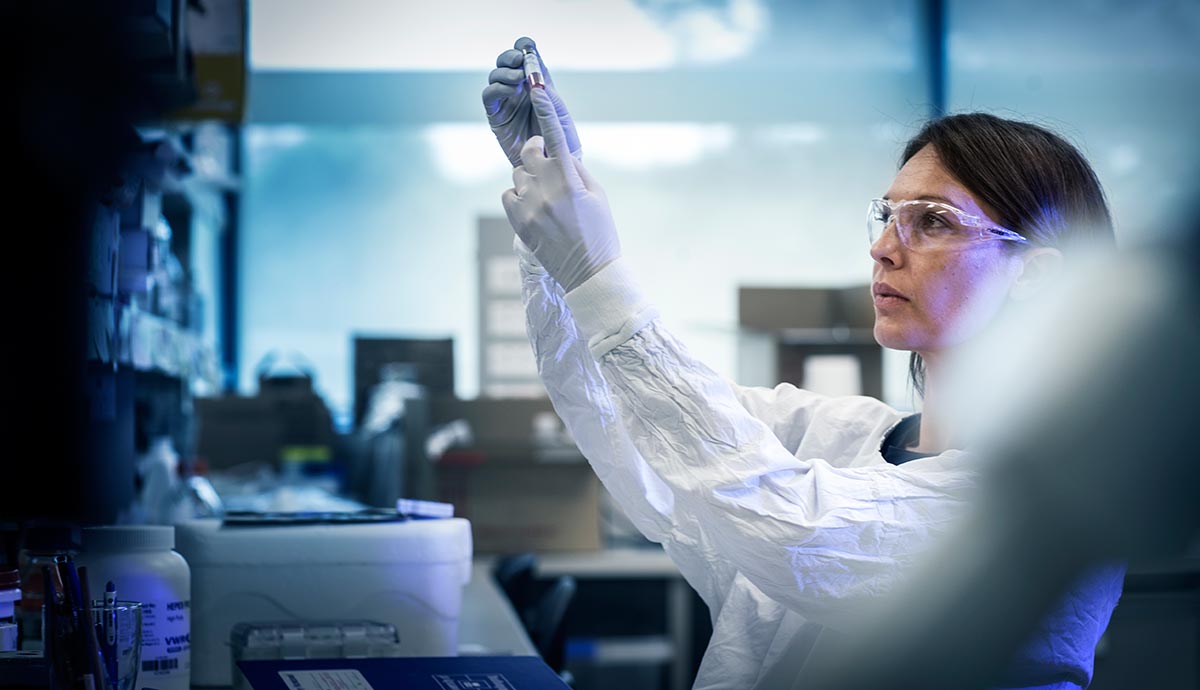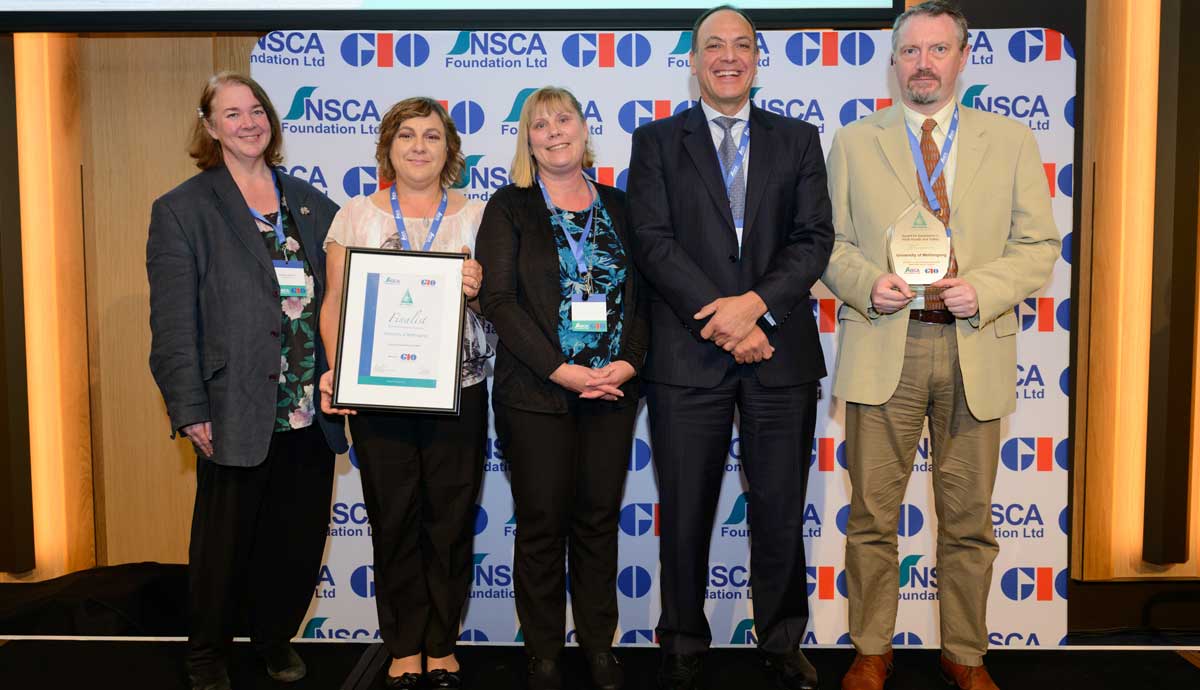October 28, 2016
Keeping our future scientists safe
Health and Safety innovators acknowledged with national awards.
The University of Wollongong (UOW) has been recognised as the benchmark for engaging staff and students in improving workplace health and safety (WHS) practices in its labs.
UOW’s workplace health and safety (WHS) team picked up two awards at the NSCA Foundation/GIO Workers Compensation 24th Annual National Safety Awards of Excellence, held recently at a gala event in Sydney.
The big prize was the Pinnacle Award for Excellence in WHS and a category award for best WHS training program.
Driven by the success of a pilot study, the UOW team created a series of online modules to engage large numbers of students and new staff in safety inductions to science laboratory classes.
The innovative induction modules overcame the traditional challenges involved in inducting significant numbers of students and engaging their interest and attention to deliver health and safety learning outcomes.
Previously all laboratory safety inductions were conducted at the start of a class and often the same information would be repeated multiple times at different sessions.
The team worked initially with an external training provider to develop interactive safety inductions to large numbers of first year chemistry students.
They used gamification to motivate and maintain engagement of the students in meeting the WHS learning outcomes that would be required in their professional development as scientists.

The results from the pilot were used develop a series of WHS training and induction programs for undergraduate, postgraduate, and SMAH faculty staff.
WHS Advisor Melinda Chylinski said safety was an integral part of laboratory teaching.
“Instilling a culture of safe practice is a significant part of our responsibility to the Faculty’s science students and staff,” she said.
“Often staff and students are disengaged and bored by traditional safety training and induction approaches.
"This is because they are usually overloaded with the same information, content and safety points over and over.
“There is little opportunity to seek out this information, and engage with it in a meaningful way.
"And yet practicing and demonstrating health and safety in the laboratory is a vital aspect of the scientific method for students and staff alike and forms part of national and international benchmarks.”
The development of online training for chemistry students and staff, and its integration with other Faculty safety training and induction programs, was a team effort between Simon Bedford, Roza Dimeska and Ms Chylinski.
The team brought a combination of educational background, technical expertise and specialist knowledge of online training and WHS.
“The project not only resulted in enormous efficiencies in training of high numbers of students and staff, but has also provided a consistent platform to roll out training modules for various applications across the Faculty and reduced incidents in the laboratory,” Ms Chylinski said.
“Designing effective safety training programs not only improves the safety culture within the workplace but also ensures that the number of incidents and accidents are reduced.
“It is particularly important to confirm that safety inductions and training are effective for new students and staff members as studies have shown that new workers are three times as likely to receive an injury within the first month of starting a new job or activity.”
This training program has also been shortlisted for two awards at the Australian Institute of Training Excellence Awards, to be held on 16 November.
Main image, left to right: Michelle Wakelam (Virtual Accident), Roza Dimeska (SMAH technical officer), Melinda Chylinski (WHS unit), Matthew Kayrooz the Head of Accident and Trauma with Suncorp and Dr Simon Bedford (Learning, Teaching and Curriculum).
